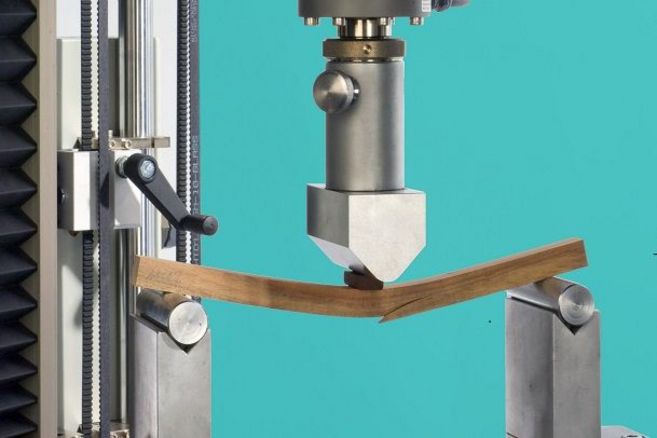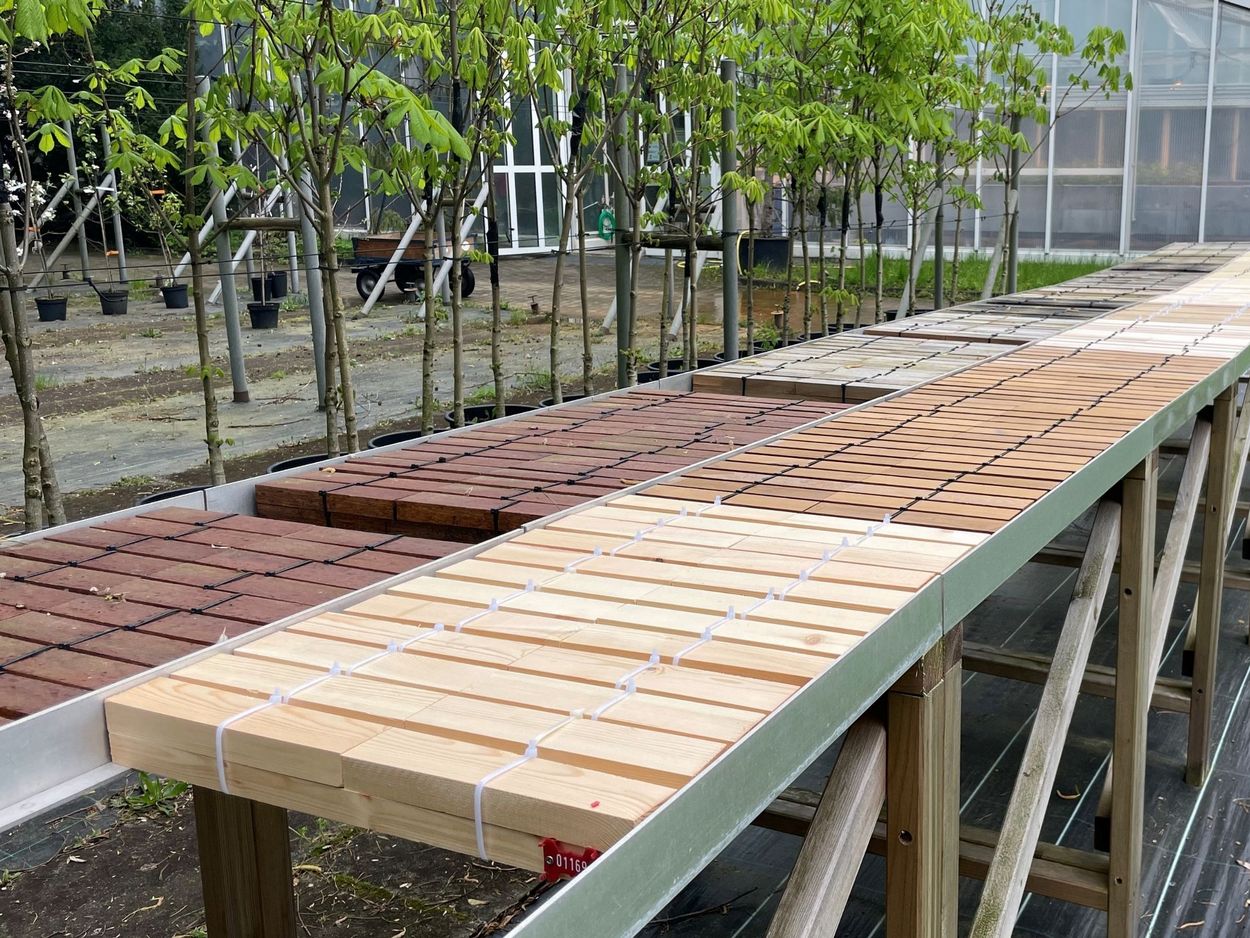Although significantly more wood is used outdoors without soil-contact than in contact with the ground, European standards do not provide for a test method for determining biological durability above-ground. Only the effectiveness of wood preservatives can be determined, for example in lap-joint or L-joint tests. In order to close this gap in European standardization, a draft standard was prepared for the bundle method, which has been used by several research teams in Europe for over 15 years. As part of a round robin test, the project aims to generate data and gain further experience with this test method in order to establish the method and include it in the portfolio of CEN standards for determining the biological durability of wood.
Bundle test specimens made from different wood species as well as thermally and chemically modified wood are simultaneously exposed in the open field by a total of seven research institutions and regularly assessed for the occurrence of rot. The tests take place at the three German locations in Olsberg (Wald & Holz NRW), Eberswalde (MPA Eberswalde) and Hamburg (Thünen-HF), in Montpellier (CIRAD, France), Ås (NIBIO, Norway), Ljubljana (University of Ljubljana, Slovenia) and on the Malaysian island of Borneo under tropical conditions and under the supervision of the Danish Technological Institute (DTI).
Contact:
More informations:
Link to the Thünen project: Round Robin Test - Bundle method




![[Translate to English:] Logo des Bundesministerium für Ernährung und Landwirtschaft](/media/allgemein/logos/BMEL_Logo.svg)